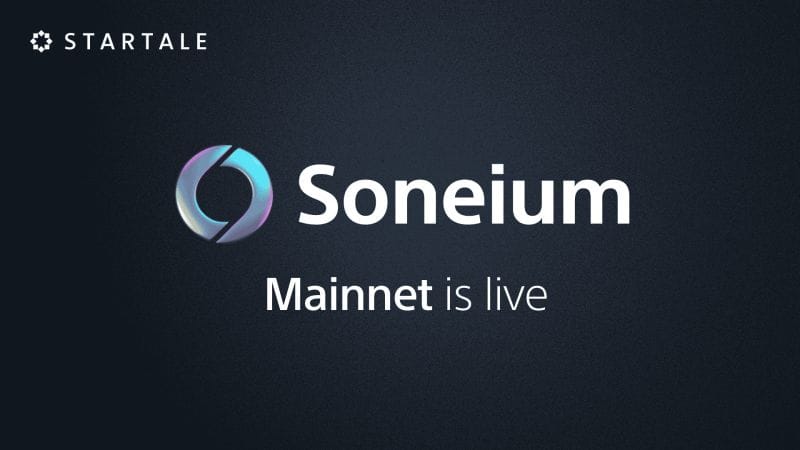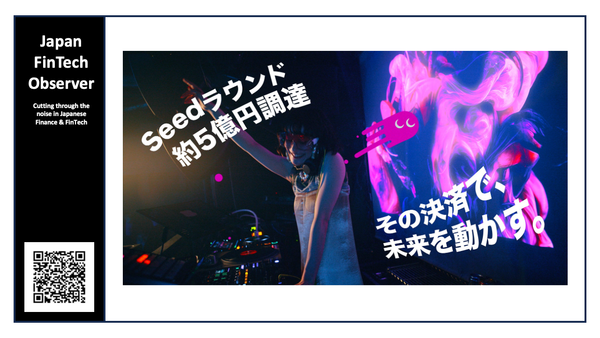Soneium mainnet is live, invites centralization controversy

The three blockchain-related companies under Sony Group, Sony Block Solutions Labs, S.BLOX, and SNFT, have announced the launch of the "Soneium" mainnet, along with an updated version of cryptoasset exchange services and an NFT issuance platform.
As creators' activities diversify in the future, content on Web3 is expected to become more interactive, and the points of contact between fans and creators will be enhanced. Sony Group has been actively providing value to creators and their fans in a variety of businesses, and aims to provide use cases that creators and fans can benefit from through comprehensive solutions in the new Internet era of Web3.
Soneium mainnet launch
Sony Block Solutions Labs announced the development of the public blockchain "Soneium" in August 2024 under the vision "Realize the Open Internet that Transcends Boundaries." The testnet "Soneium Minato" was released after that, providing a test environment accessible to everyone. Developers and creators are also able to test the network's specifications before moving to the production environment and releasing their apps on Soneium Minato. At the same time end users could access and use these apps from their web wallets.
A large number of apps have already been developed on Soneium Minato, including 32 projects selected from over 1,700 applications for the "Soneium Spark" incubation program launched in September 2024. Additionally, numerous other applications have been developed by independent creators. Entertainment apps such as games, NFT, and social apps have been launched along with financial and other apps. The number of accounts exceeding 14m and transactions exceeding 47m have been verified.
Now, Soneium's production environment is officially open to the public. Since the network specifications closely match those of Soneium Minato, apps developed in its environment can also run seamlessly on Soneium. Soneium's production environment allows end users to make payments using real crypto assets within each app. In addition to allowing creators to generate revenue through in-app payments, users can continue to build fan communities to support and encourage creators through activities on their favorite apps.
Update of cryptocurrency exchange service S.BLOX
Crypto assets are essential for payments within apps on Soneium. They are generally used in Web3 apps instead of legal tender and must be acquired through cryptoasset exchange services.
Aiming to provide an all-in-one experience for trading crypto assets and using apps on Soneium, S.BLOX Corporation has launched "S. BLOX," a rebranded and redesigned version of the "WhaleFin" platform. In addition to a new UI, the company also plans to introduce a new, user-friendly mobile app and expand the range of supported currencies in the future.
To celebrate the renewal of the service, a campaign will be launched today offering BTC worth 3,000 yen as a reward for opening a new account and trading crypto assets. In addition, an NFT distribution campaign utilizing the Soneium network is set to launch in February, as a collaboration project with "Ghost in the Shell."
Release of fan marketing platform using NFT
In February 2025, SNFT will release a new Fan Marketing Platform as one of the applications that will be compatible with Soneium. The platform will provide one-stop support for companies implementing NFT initiatives, from execution to analysis of NFT-based fan engagement metrics. Companies will be able to use this service to easily issue NFTs, creating new touchpoints and exciting user experiences to deepen fan engagement. Unlike many other Web3 platforms that require users to set up separate crypto wallets, the new service will provide an integrated web-based wallet with social login. This makes it simple for even for novice users to receive and manage NFTs.
Sony Group plans to conduct a demonstration experiment with its entertainment-related companies to provide new value to creators and fans through these Web3 services. There are plans to issue NFTs on the Soneium network through the Fan Marketing Platform, aiming to provide value to fans of each IP and expand engagement using Web3 technology. Each project is scheduled to begin sequentially from mid January to February 2025.
Day 1 of Soneium
Sony's new Soneium blockchain faced immediate backlash after freezing two memecoins, Aibo and Toro, just hours after its Tuesday launch. This action resulted in significant financial losses for investors, with some claiming thousands of dollars lost.
Around 4 am London time, Soneium users reported on Discord that trading for both memecoins had ceased. Blockscout's Soneium explorer subsequently marked the tokens as "Forbidden," effectively halting all transaction data. The reason? Alleged unauthorized use of Sony's copyrighted material in the memecoins' creation.
While Sony Block Solutions Labs, the developers of Soneium, stated that the freeze was implemented to "safeguard the rights of IP holders," the move surprised many. Other blockchains actively encourage memecoins, hoping for a viral hit to boost their platform's visibility. Sony, however, prioritized protecting its intellectual property, claiming "swift action was necessary" in these cases.
This contrasts sharply with the norm on memecoin-friendly blockchains like Solana, where the use of copyrighted material in memes is common practice. Shutting down such tokens due to copyright infringement is typically difficult given the decentralized and anonymous nature of these platforms.
Soneium's centralized structure, however, allows its creators to freeze any token at will. This control led to accusations of "rugging," a crypto term for manipulating a token's price for personal profit at the expense of other investors. Before being frozen, Aibo, named after Sony's robotic dogs, had a market value of $2.7 million, while Toro, referencing a Sony Interactive Entertainment mascot, reached $1.1 million.
Soneium, positioned as Sony's foray into the corporate crypto sphere, functions as an Ethereum layer 2. Despite Sony BSL's stated goal of fostering creativity and protecting content rights, the swift crackdown on IP infringement surprised many.
In response to the criticism, Sony BSL announced plans for a "grace period" before blacklisting tokens, allowing developers a chance to rectify issues. However, Soneium's centralized approach may deter users accustomed to more decentralized blockchains. Despite the controversy, Sony remains confident that this incident won't hinder Soneium's growth.
Please follow us to read more about Finance & FinTech in Japan, like hundreds of readers do every day. We invite you to also register for our short weekly digest, the “Japan FinTech Observer”, on LinkedIn, or directly here on the platform.
We also provide a daily short-form Japan FinTech Observer news podcast, available via its Podcast Page. Our global Finance & FinTech Podcast, “eXponential Finance” is available through its own LinkedIn newsletter, or via its Podcast Page.
Should you live in Tokyo, or just pass through, please also join our meetup. In any case, our YouTube channel and LinkedIn page are there for you as well.




